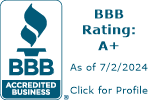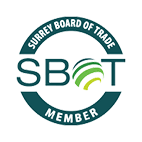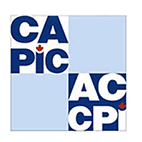Three months ago, I received a call from Julien, a marketing professional from France who had been sitting in the Express Entry pool for over a year with a CRS score of 440. “I keep seeing these general draws requiring 500+ points,” he said. “Should I just give up on Express Entry and try something else?”
That’s when I explained the French language proficiency category, a pathway that could cut his wait time by months and reduce his required CRS score by over 100 points.
Recent French proficiency draws have invited candidates with CRS scores as low as 428, while general draws routinely require 500+ points. For French-speaking candidates, this category represents one of the most accessible Express Entry pathways available in 2025.
If you have French language skills or are willing to develop them, understanding this category could dramatically improve your immigration prospects.
Canada’s French Language Priority in 2025
Canada’s commitment to Francophone immigration has reached historic levels in 2025. IRCC aims for 8.5% (29,325) of French-speaking permanent residents outside Quebec. This priority originated from Canada’s Official Languages Act and the need to support Francophone minority communities outside Quebec.
The federal government provides dedicated funding for Francophone immigrant integration and actively promotes French-language settlement across all provinces and territories.
Category-Based Express Entry draws for French proficiency occur approximately every 6-8 weeks, offering comparatively lower CRS cut-off scores than general draws.
These draws support both demographic balance and labour market needs in Francophone communities. Healthcare, education, and government sectors particularly benefit from bilingual professionals, creating employment opportunities that extend far beyond traditional Francophone regions.
Eligibility Criteria for the French Language Proficiency Category
The French language proficiency category has specific requirements that differ from general Express Entry eligibility:
- Language requirement: You must achieve at least NCLC 7 in all four French abilities, including reading, writing, speaking, and listening. This is non-negotiable and applies to every candidate regardless of other qualifications.
- Language Test: Approved French language tests include only TEF Canada and TCF Canada. Test results must be less than 2 years old when you submit your permanent residence application.
- EE Profile: Express Entry profile timing is important. Your profile must be active in the pool before the French category draw occurs. You cannot create a profile specifically for a draw. It must be submitted in advance and meet all standard Express Entry eligibility requirements.
- English Test: English language requirements remain important even for French category draws. While French proficiency qualifies you for the category, strong English skills will boost your overall CRS score and employment potential.
Extra Points and Opportunities for Francophones
Start your eligibility assessment for French Express Entry.
French Language Testing: What You Need to Know
Success in the French category depends entirely on achieving the required language scores. Understanding the testing process and preparation requirements is essential.
TEF Canada vs. TCF Canada
Both tests assess the same four language skills, but their formats and scoring systems differ:
TEF Canada uses a points-based scoring system. For NCLC 7 in TEF you need:
- 207-232 points in reading
- 310-348 in listening
- 249-279 in writing
- and 310-348 in speaking
TCF Canada uses level-based scoring with specific thresholds for each NCLC level. Many candidates find TCF Canada’s format more straightforward, but both tests are equally acceptable for Express Entry. For NCLC 7 in TCF you need:
- 458 to 502 (B2-C1) in listening
- 453 to 498 (B2) in reading
- 10-11 (B2) in speaking
- 10-11 (B2) in writing
Read in detail here: French Test for Canada PR
CRS Score Benefits and Cutoffs for French-Speaking Candidates
The CRS scoring advantages for French proficiency extend far beyond category-based draw eligibility:
Direct Point Benefits
French as second official language can add up to 24 points if you achieve CLB 7+ in all four skills while maintaining CLB 5+ in English. Candidates can earn 50 additional points if they score NCLC 7 or higher in all four French skills while maintaining CLB 5 or higher in English.
Additional factors compound benefits. Bilingual candidates often qualify for enhanced scoring in education, work experience, and arranged employment categories.
Historical Draw Patterns
French language proficiency draws have recently featured CRS cut-off scores between 379 and 481, with the most recent draw in August 2025 requiring 481 points. This represents a notable increase compared to earlier draws, such as in March 2025, where the cut-off scores were as low as 379.
It provides a 20–40 point advantage over general draws, which typically require CRS scores above 500, such as Canadian Experience Class draws ranging from 518 to 547 in recent months.
Draw frequency occurs approximately every 8-12 weeks, providing multiple opportunities throughout the year. The number of invitations varies but recent draws have issued between 2,500-7,500 ITAs per draw.
Spouse Benefits
French proficiency also benefits accompanying spouses through additional CRS points for spouse language skills. If both principal applicant and spouse achieve French proficiency, the combined benefit can add 40+ points to your overall CRS score.
Strategic Benefits of Applying through the French Category
Beyond the obvious CRS advantages, French category candidates enjoy several strategic benefits:
- Reduced competition compared to general Express Entry draws. While general draws compete among all eligible candidates, French category draws only include candidates meeting language requirements, a much smaller pool.
- Multiple pathway access. French proficiency simultaneously qualifies candidates for Express Entry, Provincial Nominee Programs with Francophone streams, and specialized programs like the Rural and Francophone Pilot.
- Employment advantages extend throughout Canada, not just Quebec. Government positions, healthcare roles, education sector jobs, and international business positions often prioritize bilingual candidates.
- Federal integration support includes funding for settlement services, employment assistance, and community integration specifically designed for Francophone immigrants.
- Community connections through established Francophone organizations across Canada provide networking opportunities and cultural support that can ease settlement challenges.
How to Prepare for French Category Express Entry in 2025?
Success requires systematic preparation addressing both language development and overall CRS optimization:
Language Skill Development
- Start with an honest assessment: Most candidates underestimate the skill level required for NCLC 7. This represents upper-intermediate to advanced proficiency, higher than conversational French.
- Focus on weak areas first: Writing typically proves most challenging for non-native speakers, followed by formal speaking tasks. Reading and listening often come more naturally to candidates with existing French exposure.
- Set realistic timelines: Reaching NCLC 7 from intermediate French typically requires 6-12 months of focused study. Advanced speakers may need 3-6 months of test-specific preparation.
- Choose your test strategically: Research both TEF and TCF Canada formats to determine which aligns better with your learning style and strengths.
- Practice all four skills equally: Many candidates focus heavily on speaking and listening while neglecting reading and writing. All four skills must meet NCLC 7 requirements.
- Take practice tests regularly: Both official and unofficial practice materials help identify weak areas and track progress toward target scores.
- Consider professional instruction: Online courses and language exchanges help, but structured instruction often proves more efficient for reaching NCLC 7 within reasonable timeframes.
Learning French for Canada PR: A Guide for Low CRS Score
CRS Score Optimization
- Maximize English proficiency simultaneously: Strong performance in both official languages provides the highest CRS benefits and demonstrates valuable bilingual capabilities to employers.
- Verify educational credentials early: Educational Credential Assessment (ECA) processing can take several months, and higher education levels significantly impact CRS scores.
- Document work experience thoroughly: International experience must be properly documented and translated if necessary. Canadian work experience, even short-term, provides additional CRS benefits.
EE Profile Management
- Submit your Express Entry profile before French draws: You cannot create a profile specifically for a draw—it must be active in the pool beforehand.
- Keep information current: Language test results, job details, and personal circumstances must be updated promptly to maintain profile accuracy.
- Monitor draw patterns: Understanding historical timing helps predict upcoming French category draws and plan accordingly.
Common Queries Related to French Language Express Entry Pathway to Canada
Can French category candidates live anywhere in Canada?
Yes, Express Entry candidates can settle anywhere outside Quebec, regardless of the category through which they received their invitation.
Is English proficiency mandatory?
While not mandatory for French category eligibility, English skills significantly impact your CRS score and employment prospects. Most successful candidates maintain strong abilities in both languages.
How often do Express Entry French draws occur?
Approximately every 6-8 weeks, though timing varies based on IRCC priorities and immigration targets.
Can I retake French language tests?
Yes, there must be a gap of two months between consecutive exams. Most candidates benefit from additional preparation rather than immediate retesting.
What are my options if I can’t reach NCLC 7 for Express Entry?
If you can’t reach NCLC 7, consider Provincial Nominee Programs with lower French requirements or focus on improving English skills for general Express Entry draws.
Take Professional Guidance from Licensed Consultants
Julien ultimately received his Invitation to Apply through a French category draw with a CRS score of 425. His success came from systematic preparation, realistic timelines, and understanding that French proficiency opened doors beyond just lower CRS requirements.
The French language advantage in Express Entry requires expert guidance to maximize your benefits. At ELAAR Immigration, our licensed professionals can assess your language skills and develop a comprehensive strategy for category-based draw success.
Contact our team today for personalized assessment and strategic guidance tailored to your French proficiency and immigration timeline.
Do you speak French and Want to Move to Canada?
Start your process with our licensed experts today.










